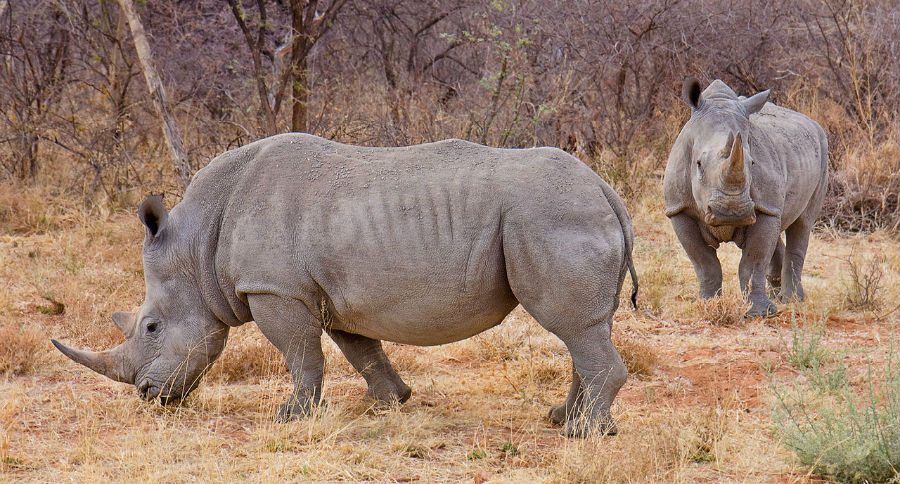Should we consider legalized trading of rhino horn as another tool to fight against the ongoing epidemic of rhino poaching?
Rhino poaching is an ongoing problem, especially in African countries where legalized trophy hunting is not in place to help fund conservation and anti-poaching systems. But should we, could we, institute a legalized rhino horn trade to help thwart rhino poaching?
There are compelling arguments both for and against the idea, but it is something that should seriously be discussed and considered.
Celebrated conservationist Shane Mahoney bluntly discusses this subject. Mahoney declares that since 2008 poachers have killed almost 6,000 rhinos in Africa. That's two animals per day on average.
"In spite of intensified enforcement efforts, public awareness campaigns, global petitions, celebrity advocacy, increasing media attention and political pressure, the situation with rhino poaching has reached a crisis point."
Mahoney discusses the the history of the rhino horn market in this video, including two growing markets in Vietnam. The 'high demand' situation for rhino horn makes stopping the poaching of rhinos a virtually impossible task.
"Many have asked the question," says Mahoney, "why not make rhino horn trade legal, regulate it, and make poachers and their illegal trade irrelevant? After all, you don't have to actually kill or even harm a rhinoceros to harvest its horn."
Additionally, dehorning a living rhino offers a further disincentive for rhino poachers to kill or maim a rhino for its horn.
CITES first banned the international rhino horn trade in 1977, and reiterated that trade ban in 2016. CITES feels that making rhino trade legal would stimulate demand, allow legal trade to provide cover for black market trade, and complicate law enforcement efforts. They also point to well known corruption in some African countries concerning wildlife resources.
Advocates for legalized rhino horn trade disagree and declare that the potential problems are outweighed by the benefits, including economic growth in some of the world's poorest countries, improving the lives of the people in these countries with an entirely renewable resource (rhino horns can regrow and be harvested again in 12 to 24 months), undermining the black market trade in rhino horn, increasing the value and desirability of rhino habitat, and increased funding for conservation and anti-poaching efforts.
One thing that both the pro and con sides of the legal rhino horn trade acknowledge is that enforcement alone has been a losing battle. Something more must be done to stem the tide.
That 'something' could include advocating for legal and well managed trophy hunting in more African countries, which seems to be working quite nicely in places like Namibia, as their rhino herds have increased rather than declined with the advent of nationwide, managed sport hunting for the animals. It could also include instituting a regulated, legal rhino horn trade.
After all, banning drugs certainly hasn't stemmed the tide of illegal drugs, and prohibition in the 1920s didn't work. It seems that the more we try to prevent access to something, by banning it, the more people want to it, the more illegal profiteers try to cash in on it, and the greater problems law enforcement has in stopping it.
Perhaps legalizing the trade in rhino horn is one way to thwart this illicit trade.
Like what you see here? You can read more great articles by David Smith at his facebook page, Stumpjack Outdoors.
NEXT: It's Past Time to Get Serious About Wildlife Crime
https://rumble.com/embed/u7gve.v3toev/




